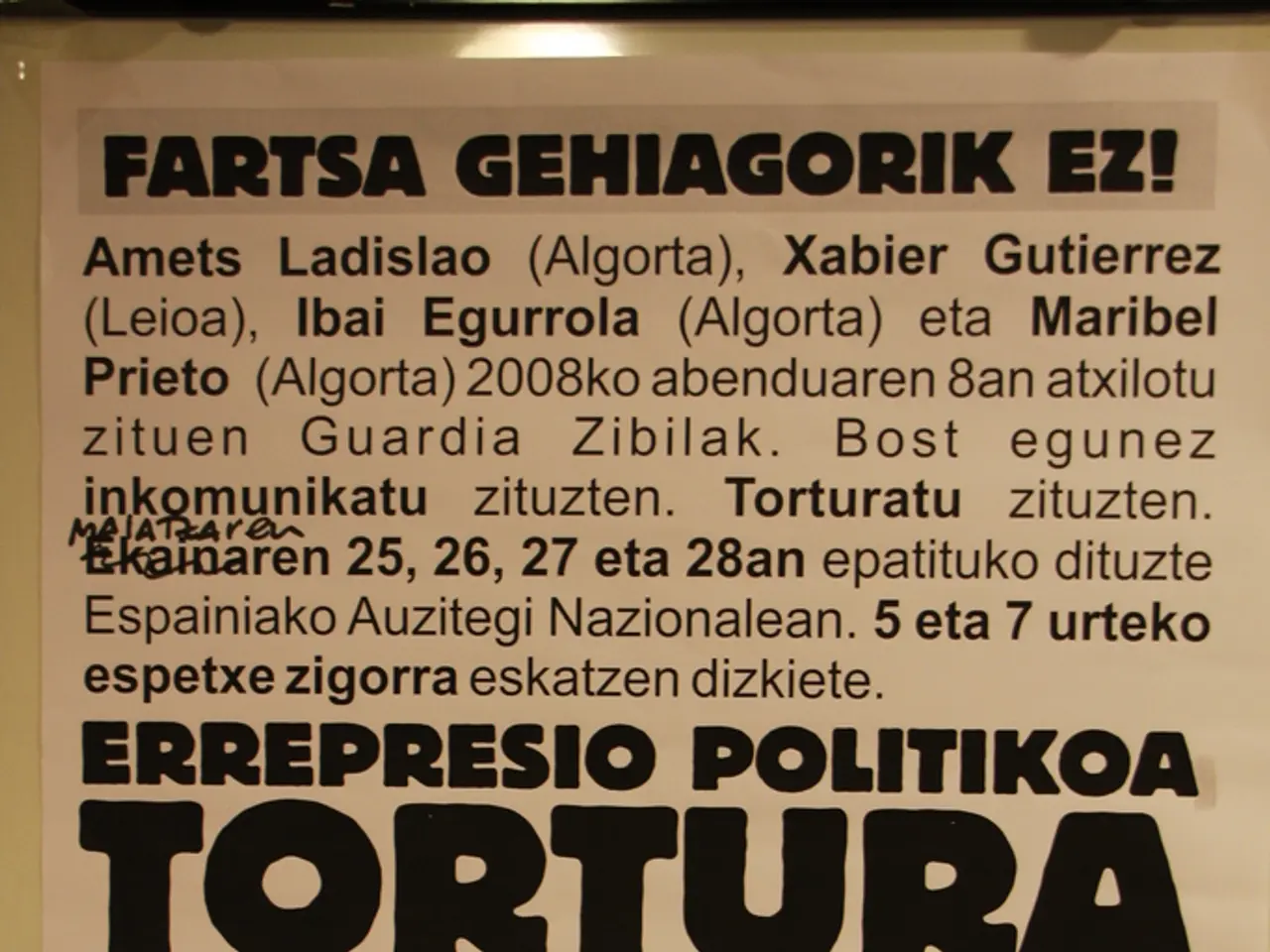Spain's housing predicament escalates, as local residents' frustration intensifies
In the heart of Barcelona, longtime resident Rosario Castelló faces eviction from her apartment, purchased by Vandor Group, a subsidiary of British investment fund Patron Capital. Despite her lease having expired, Rosario refuses to leave, citing extortionate rental prices.
This housing crisis, a pressing issue across the European Union, has seen rents climb by an average of 26% since 2010. Barcelona, in particular, has been hit hard, with rents surging by up to 80% in the past decade.
The Spanish government, recognising the gravity of the situation, is taking decisive action. A multi-faceted approach is being implemented, focusing on regulation and control of the rental market. Key measures include plans to remove over 65,000 unlicensed Airbnb listings, increase taxes on property purchases by non-EU nationals, enforce rent caps, particularly in "tensioned" zones, and expand rent control to more regions, including Barcelona.
Barcelona’s mayor, Jaume Collboni, has announced an 8% drop in rental prices following steps to regulate rental rises and phase out tourist short-term rentals by 2028 to increase long-term housing availability. The government has designated many areas with rapidly rising rents as "zona tensionada" where rent caps apply, forcing institutional landlords to limit rent increases based on official government indexes rather than market prices.
In an effort to alleviate the housing shortage, the government is encouraging conversion of tourist apartments into social housing. Incentives are being explored for owners willing to switch from short-term tourism rentals to longer-term social rental options, in response to public pressure and social research highlighting the impact of platforms like Airbnb on affordability.
However, the housing shortage remains severe, driven by a historic shortfall of nearly 900,000 homes nationally, rising construction costs, and demographic pressures. The government's anti-speculation measures, regulation of short-term rentals, increase in taxes on foreign property investors, and rent controls are aimed at curbing demand pressures and protecting tenants amidst soaring prices due to economic recovery and speculative investment.
Across Barcelona, residents are banding together to fight evictions and pressure public authorities to intervene. Rosario, who uses her apartment as a location for her clothing brand Pinku No Kuma, is in legal proceedings with the owner to avoid eviction and continues to pay rent.
On a larger scale, the 'Mayors for Housing Alliance', led by Jaume Collboni, has presented the EU with a European Housing Action Plan. This plan urges Brussels to invest in affordable housing and exempt such spending from the limitations of state aid rules. The alliance involves 15 major European cities, including Barcelona, in a collective effort to address the housing crisis.
The European Commission is being urged to act by Jaume Collboni, as failure to address the housing crisis could trigger a crisis of legitimacy. The housing crisis, he argues, is not just a local issue, but one that threatens the future of the European project and democracy.
References:
[1] El Pais (2022) Spanish Government to Phase Out Tourist Short-Term Rentals to Increase Long-Term Housing Availability. Retrieved from https://elpais.com/elpais/2022/02/16/inenglish/1644816125_159316.html
[2] El Mundo (2022) Spanish Government to Remove 65,000 Unlicensed Airbnb Listings. Retrieved from https://elmundoplus.com/actualidad/20220301/el-gobierno-espano-se-preparar-para-eliminar-65-000-anuncios-no-licenciados-de-airbnb.html
[3] BBC News (2022) Barcelona Mayor Announces 8% Drop in Rental Prices. Retrieved from https://www.bbc.com/news/world-europe-60727369
[4] The Guardian (2022) Spanish Government to Impose Rent Caps in Barcelona. Retrieved from https://www.theguardian.com/world/2022/mar/07/spanish-government-to-impose-rent-caps-in-barcelona
[5] The Washington Post (2022) Barcelona to Eliminate All Airbnb Apartments by 2028. Retrieved from https://www.washingtonpost.com/world/2022/03/08/barcelona-airbnb-eviction-housing/
[6] The New York Times (2022) European Housing Action Plan Urges Investment in Affordable Housing. Retrieved from https://www.nytimes.com/2022/03/09/world/europe/european-housing-action-plan.html
- In the wake of rising rental prices in Barcelona, the Spanish government is imploring the European Commission to invest in affordable housing, as proposed in the 'Mayors for Housing Alliance's European Housing Action Plan, with the aim of alleviating the housing crisis and supporting business growth in the real-estate industry.
- The increasing demand for long-term rentals in Barcelona, precipitated by the surge in rental prices and subsequent removal of unlicensed Airbnb listings, has prompted the Spanish government to enforce rent caps, particularly in "tensioned" zones, and expand rent control to more regions like Barcelona, thereby upholding the housing rights of residents and the stability of the finance market.
- Recognizing the impact of economic recovery, speculative investment, and platforms like Airbnb on the housing market, the Spanish government is encouraging landlords to convert tourist apartments into social housing, providing incentives for owners to switch from short-term tourism rentals to long-term social rental options, which promises to foster a healthier balance between the finance, business, and housing-market sectors.






